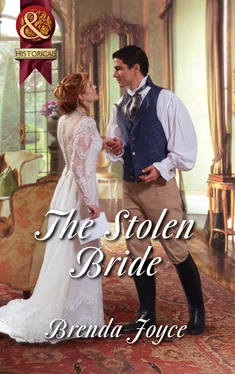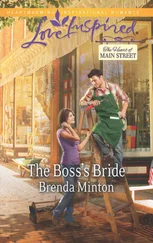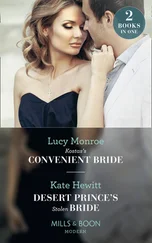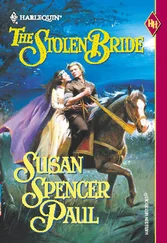More sweat pooled.
His heart pumped with painful force now. He stepped from the woods and onto the road, almost expecting a column of troops to mow him mercilessly down. But not a single soldier appeared, much less an entire column. He tried to breathe more easily, but he simply could not. He was too afraid.
He blinked against the brightening sky and pushed across the road.
The man saw him and halted.
Sean cursed his vision and strode on. He tried to summon up his voice, the effort huge. Just before his solitary confinement, there had been a murder within the prison, and much mayhem had followed. He had been badly beaten, and in the riot, his throat had been cut. No physician had been sent to attend him and for a while, he had been at death’s door. He had healed, but not fully. He could no longer speak with any ease; in fact, forming each word took tiring and painstaking effort. Of course, there had been no one to speak to for two years, and once he realized that he could barely talk, he had not even tried.
Now, he forced the word from his throat and mouth. “Conn…elly?” And he heard how hoarse and unpleasant he sounded.
The man hurried forward. “Ye be O’Neill,” he said, taking his arm.
Sean was shocked by his touch, and alarmed to realize he had been expected. He flinched and jerked away from the other man. “How?” He stopped and fought for the words a child could so easily utter. “How…do…you know?”
“We got our own secret post, if ye get my meaning,” Connelly said. He was a big, burly man with a long red nose and bright blue eyes. “I been sent word. Ye better get inside.”
A flurry of messages must have been relayed, sending the news of his escape and his need ahead of him. Sean followed the big man into the house, allowing himself to feel a small amount of relief when the front door was solidly closed, barring the outside world.
“The missus is already with the hens,” Connelly said. “Ye be John Collins now.” He spoke swiftly, but as he did, his gaze took in Sean’s appearance with growing concern. “Ye look like a skeleton, me boy. I’ll feed ye and give ye a blade fer your face. Damn those bloody Brits!”
Sean simply nodded, but he reached for the thick beard on his face. There’d been no shaving for two years.
Connelly hesitated, then spoke, “I’m sorry about what happened in Kilvore. I’m sorry about it all, an’ I’m sorry about yer wife and child.”
Sean stiffened. An image formed, blurred, a sweet face with kind and hopeful eyes. Peg had faded into an indistinct and painful memory that was colorless, even though he knew her hair had been shockingly red. His gut twisted, aching.
He had grieved at first, for many months; now, there was only guilt. They were dead because of him .
“Ye got no choice but to leave the country. Ye know that, don’t you?”
Sean nodded, glad to have his thoughts interrupted. He had learned how to avoid all memory of his brief marriage, except in the wee hours of the night. “Yes.”
“Good. Ye go straight down Blarney Road to Blarney Street. Ye can cross the river at the first bridge. Follow the river, it’ll take you to Anderson Quay. Cobbler O’Dell will put you up.”
Sean nodded again. He had questions, especially as to when he would be able to find a passage and how it would be paid for, but he was suddenly exhausted and he was also starving. He’d had a single loaf of stale bread in the past three days. Worse, speaking was a terrible chore. He tried to find and form the words. “When? When…will…I…leave the country?”
“Sit down, boyo,” Connelly said, his expression grim. “I don’t know. Every day at noon, ye go to Oliver Street. The pub there, it’s right around the corner from O’Dell. Ye look fer a gentleman with a white flower pinned to his jacket. He will be able to tell you what ye need to know. I’m only a farmer, Sean.”
Sean struggled. “Noon.” He tried to clear his throat. Even his jaw felt odd, rusty, weak. “Today? Should I…go today?”
“I don’t know if the gent will be there today or tomorrow or the next day. But he’s good. He’s real good at helpin’ patriots. His name is McBane. Ye don’t want to miss him.”
McBane , Sean thought. He nodded again.
Connelly turned and went to the larder. He returned with a plate of boiled potatoes and a large chunk of bread and cheese. Sean felt saliva gathering in his mouth.
The supper table was set in white linens, with Waterford crystal wineglasses , imported china and gilded flatware. Huge chandeliers were overhead, towering candles flickered on the table and liveried footmen carried sterling platters of venison, lamb and salmon. The women wore silks and jewels, the men black dinner coats and white shirts and ties. Perfume wafted in the air ….
He jerked, shocked by a memory he had no right to have. He refused to identify it or the man it belonged to.
Instead, he tore off pieces of bread and cheese, devouring them almost in the same instant. The only past he wished to remember was the recent one—his life at the Boyle farm. Otherwise, he would never be able to pay for what he had done to them.
THE NOISE WAS DEAFENING.
Sean paused once inside the barroom’s door, overwhelmed by the cacophony of sound. The instinct to clap his hands over his ears to dim the sound was almost impossible to resist. The raucous conversation and laughter, the scraping of wood chairs, the clink of tin, was a barrage of sound that threatened to immobilize him. As it was, he was rigid with the tension it had engendered in him. And the bright lights were blinding.
He had left the farm within an hour of first arriving there and had followed Connelly’s instructions. It had been easy to find the cobbler, who had put him up in a small room over his shop. It had been hugely difficult to make his way through the awakening and bustling city. He had been shocked by the sight of so many people, both on foot and on horseback, or driving wagons and carts. There had been so much pedestrian and vehicular traffic. He had seen one-horse gigs and two-horse curricles and even large coaches. And then there had been all those barges on the river. There had simply been so much movement, so many people, so much chatter, conversation and noise. And there had been so much dirt, soot, smoke and refuse. He felt strange and alien, like a farmer from the far Northwest who had never been in a city before.
In the few short hours he had been in town, his senses had not become accustomed to the sensory overload. Now, in the pub, he had to hold a hand over his eyes. Briefly, he felt a surge of panic and it was not for the first time. There were too many loud people in this single room, he thought, and his first instinct was to flee.
Yet he remained capable of reason. His mind knew that the overcrowded public room was far preferable to the small box that had been his cell. And he told himself that he would eventually become accustomed to the noise and the crowd.
Someone entered the barroom, brushing past him as he did so.
Sean did not think. The dagger appeared in his hand, a reflex meant to ensure his survival, so swiftly that no observer would have seen any movement. But the moment he grasped the carved handle above the lethal blade, the moment he held the dagger chest high, poised to slice the intruder’s throat, some sanity and even humanity returned. Sean stopped himself. He braced hard against the wall, panting, subduing the urge to defend himself, the urge to kill in that defense, reminding himself that he was not a beast, never mind the past two years of being caged and fed like one. He was a man, even if he was the only one who might think so.
Читать дальше












